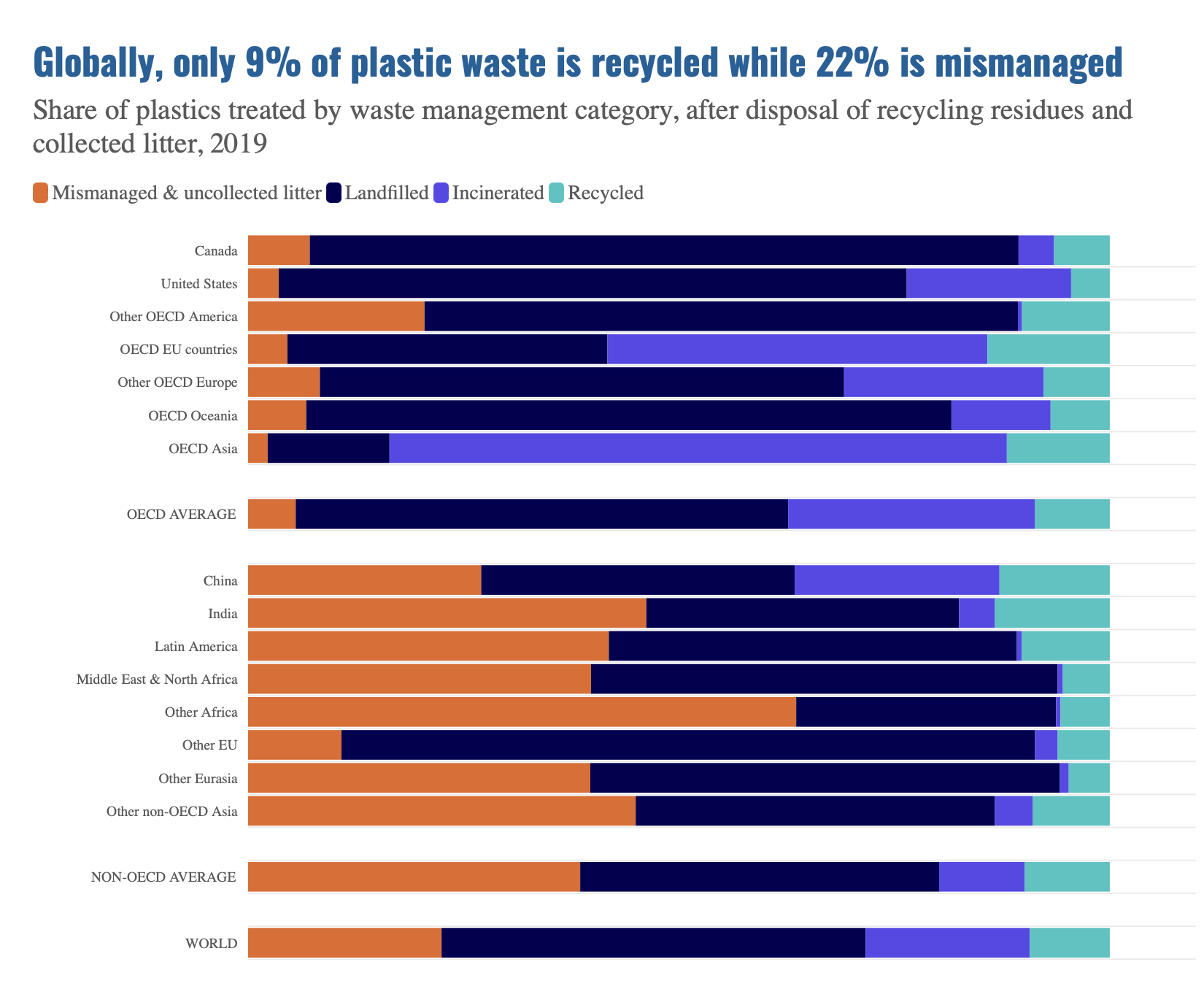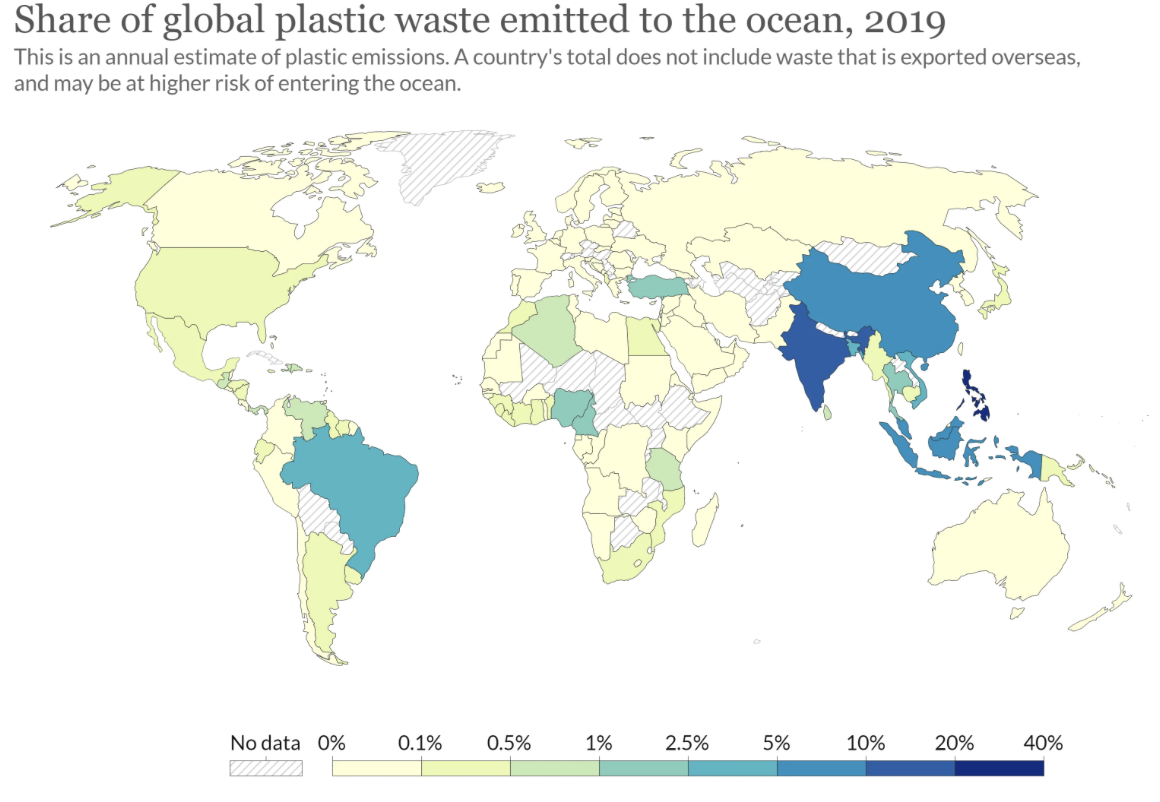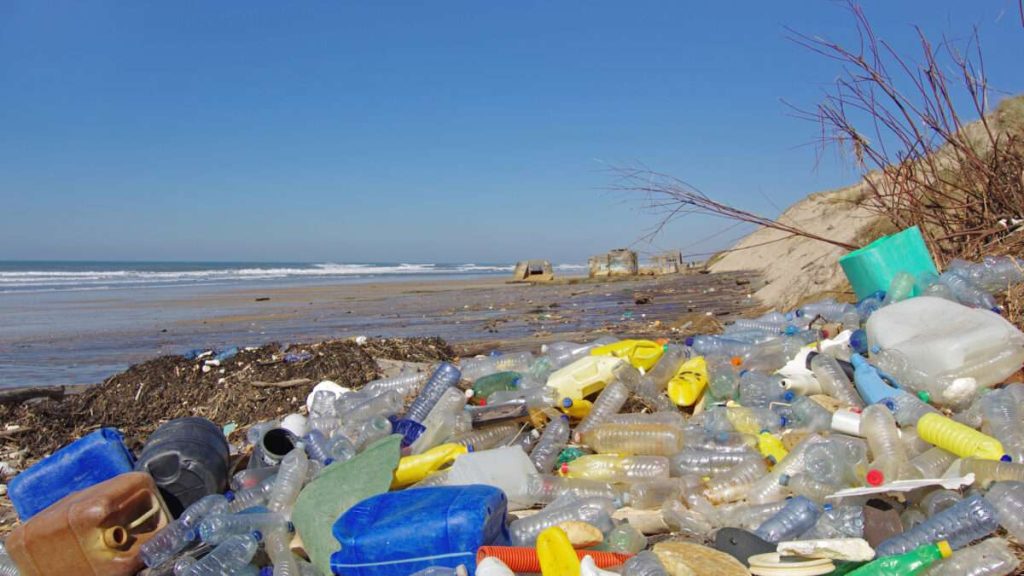
The nations of the world were supposed to complete negotiations on a Global Plastics Treaty on December 1. They didn’t. The main sticking point was some countries’ demand for a global cap on the future production of plastics.
Plastics are ubiquitous because they are amazingly useful and cheap. (Baseline projections suggest that annual global plastic use will triple to 1.3 billion tons by 2060.) They are also extraordinarily durable, taking decades to centuries to break up and degrade. This means that much of the plastic produced today will linger for generations.
Plastic pollution is undeniably a problem. Each year, tens of millions of tons of plastic wastes pile up in landfills or—much more problematically—pollute landscapes, waterways, and the oceans. In the 2022 Global Plastics Outlook, the Organisation for Economic Co-operation and Development found that “only 9% of plastic waste is recycled (15% is collected for recycling but 40% of that is disposed of as residues). Another 19% is incinerated, 50% ends up in landfill and 22% evades waste management systems and goes into uncontrolled dumpsites, is burned in open pits or ends up in terrestrial or aquatic environments, especially in poorer countries.”
Thanks to rising use and to terrible waste mismanagement, the 2019 Global Plastics Outlook pointed out, 6.1 million metric tons of plastic waste leaked in 2019 into aquatic environments; 1.7 million tons flowed into oceans. An estimated 30 million tons of plastic waste currently float in the oceans, and a further 109 million tons are piled up in rivers. “The build-up of plastics in rivers implies that leakage into the ocean will continue for decades to come, even if mismanaged plastic waste could be significantly reduced,” notes the report.
This accumulation of plastics waste is an example of an open access commons problem. In this case, millions of free-riding consumers negligently toss their wastes into natural environments which have no owners who have an incentive to protect them.
The latest Global Plastic Treaty negotiations fell apart over a clash between two different perspectives on how best to handle this waste. The first perspective holds that plastics pollution is largely a mismanagement problem. The second aims to reduce the amount of plastics that would be produced in the future.
The nearly 70 countries that call themselves the High Ambition Coalition pushed for “a clear path to ending plastic pollution, including on reducing production and consumption of primary plastic polymers to sustainable levels.” To that end, they pushed for a cap on the future production of plastics. This was fiercely opposed by a coalition of oil- and gas-producing nations, including Saudi Arabia, Russia, Iran, and Kuwait. (About 98 percent of new single-use plastics are manufactured out of crude oil and natural gas.) A delegate from Kuwait summed up their views when he said, “We are not here to end plastic itself…but plastic pollution.” Since all United Nations treaties must be adopted by consensus, the talks then collapsed.

Clearly, the disposal of plastic wastes is widely mismanaged, especially in developing countries:
One piece of good news is that only about 4 percent of plastic wastes are currently mismanaged in the United States. That figure rises to an average of 6 percent for developed countries.
Poorer countries are doing much worse: The figures for mismanaged wastes in China, India, Latin America, and Sub-Saharan Africa are 27, 46, 42, and 64 percent, respectively. These same regions are responsible for the bulk of the plastic wastes flowing down their rivers into the oceans:

Besides the unsightliness and deleterious ecological effects of plastic pollution, there are some very preliminary health concerns about exposure to the micro and nano plastics every plastic product eventually breaks down into. That said, the U.S. Food and Drug Administration notes that “current scientific evidence does not demonstrate that levels of microplastics or nanoplastics detected in foods pose a risk to human health.”
There are two strategies for tackling such environmental open access tragedies: privatization or regulation. In the rich countries like the United States, most wastes, including plastics, are picked up and disposed by public or commercial garbage haulers in the $91 billion waste management industry. Most Americans take responsibility for their wastes by paying local taxes or fees to bury them in landfills, burn them, or recycle them. As a result, relatively little plastic from the U.S. ends up in the oceans. Bans on plastic bags and water bottles in this country are largely instances of symbolic moral preening.
Here is some more good news: Human technical ingenuity is already making progress toward curbing the plastics wastes problem by developing infinitely recyclable bio-based plastics.
In the meantime, a race is on between rising plastic wastes and the GDP increases poor countries would need to improve their waste management. The negotiations for U.N. environmental treaties usually involve a lot of wrangling between rich and poor countries over money. This particular text currently maintains a decorous silence over just how much cash might be at stake, but a 2022 report by the McKinsey consultancy estimated that building out fully functional waste management systems—roads, landfills, waste-to-energy facilities, trucks, trash points, recycling—could cost emerging economies $560 billion to $680 billion over 10 years.
Environmental treaties do not always fail. The Montreal Protocol succeeded in eliminating the chlorofluorocarbon emissions that were eroding the Earth’s ozone layer. On the other hand, the Paris Climate Change Agreement has so far failed to stem the greenhouse gas emissions associated with global climate change.
So far the plastic diplomats haven’t done much better than the climate-change diplomats. But they haven’t given up yet: Negotiations will resume in the middle of next year.
The post U.N. Plastics Treaty Talks Collapse appeared first on Reason.com.







